Data Security in African Health Startups: Best Practices
Health data is powerful—and dangerous in the wrong hands. Discover actionable, African-relevant tips for securing patient information in your health startup, from encryption to ethics.

“What is whispered in the ear of one man should not be heard by the whole village.” — African proverb
In African healthtech, data is currency—but it’s also trust.
You’re collecting sensitive details: HIV status, pregnancy history, mental health struggles, financial records. One breach, one leak, one WhatsApp-forwarded PDF... and your startup could lose lives and legitimacy.
So let’s talk: How do African health startups build data-secure platforms that protect people—not just products?
⚠️ Why Data Security is Non-Negotiable
-
A leaked file could out a patient's HIV status in a conservative community.
-
Poor encryption could expose payment details or identity documents.
-
A hacked system could disrupt services for thousands of CHWs or clinics.
And yet, many health startups in Africa launch without a data security framework.
In 2023, over 40% of African health startups had no documented data protection policy (AfriTech Health Report, 2023).
🌍 What the Law Says
Across Africa, data protection laws are on the rise:
| Country | Law / Framework | Year |
|---|---|---|
| Kenya | Data Protection Act (DPA) | 2019 |
| Nigeria | NDPR (Nigeria Data Protection Regulation) | 2019 |
| South Africa | POPIA (Protection of Personal Info Act) | 2020 |
| Ghana | Data Protection Act | 2012 |
🔗 Kenya DPA: https://ict.go.ke/data-protection-act/
🔗 Nigeria NDPR: https://ndpc.gov.ng/regulations/
🔗 South Africa POPIA: https://popia.co.za/
Even if you’re just testing in a village in Vihiga or running an SMS program in Sokoto, you’re still accountable.
🛡️ Best Practices for African Health Startups
1. Encrypt Everything
"The gourd that holds medicine must not leak."
Use end-to-end encryption for all patient communications and data storage. Tools like SSL, AES-256, and HTTPS aren't optional—they're essential.
🔐 Tools:
-
Cloudflare for SSL: https://www.cloudflare.com
-
AWS or Google Cloud encryption services
-
Signal Protocol for messaging
2. Minimize What You Collect
If you don’t need someone’s national ID or blood type—don’t collect it.
This principle of data minimization reduces risk and builds trust.
3. Role-Based Access Controls (RBAC)
Everyone on your team shouldn't have full access to all data.
Give access only to what each person needs—and track who accesses what.
4. Offline Consent is Still Consent
Whether you're collecting consent digitally or via pen and paper in Kiswahili, it must be:
-
Informed
-
Specific
-
Revocable
Use simple, local language. Consider audio recordings or translated scripts for low-literacy users.
5. Two-Factor Authentication (2FA) Always
From CHW dashboards to admin portals, 2FA should be standard. Use email, SMS, or authenticator apps.
6. Store Data Locally, If Possible
Some countries require health data to be hosted within national borders (data localization). Double-check regulations.
7. Have a Breach Response Plan
“Even the hen that is caught must know how to squawk.”
If you’re breached:
-
Notify authorities (within 72 hours under Kenya DPA)
-
Inform affected users
-
Fix the vulnerability
-
Document everything
👀 Real-World Example: The mHealth Leak in Uganda
In 2022, a well-meaning health chatbot in Uganda accidentally leaked user chats that included sexual abuse disclosures. The chats were stored in plaintext on an unsecured server.
The startup lost donor funding—and public trust.
Lesson? Security isn’t a tech issue. It’s an ethics issue.
🧠 Bonus Tips from the Field
“We trained our CHWs not just on the app—but on how NOT to share screenshots of patient records.”
— Founder, RuralHealth KE
“WhatsApp seemed easy, until one forwarded photo exposed a woman’s HIV results.”
— Nurse Supervisor, Nigeria
✅ Tools & Services for African Startups
| Tool/Service | Purpose | Link |
|---|---|---|
| Cloudflare | Web encryption & protection | cloudflare.com |
| VeraCrypt | Data encryption (free) | veracrypt.fr |
| RapidPro | Secure messaging platform | community.rapidpro.io |
| AWS Shield | DDoS protection | aws.amazon.com/shield |
📜 Sample African Startup Security Checklist
-
SSL certificate installed
-
Data minimization policy in place
-
Staff trained on privacy practices
-
2FA on all logins
-
Consent language translated/localized
-
Regular backups and audits
-
Data Breach Plan
👏 Final Thoughts
“You cannot hide a sickness that eats you from the inside.”
That’s how data breaches work. They start silently—but spread quickly.
If you’re building a health startup in Africa, you’re not just coding an app—you’re holding someone’s story, secrets, and safety.
Handle with care.
Would you like a downloadable Data Security Starter Kit or a Privacy Policy Template for African Health Startups? Just say the word!
Let’s make digital health safer—one byte at a time. 🛡️💡
What's Your Reaction?
 Like
0
Like
0
 Dislike
0
Dislike
0
 Love
0
Love
0
 Funny
0
Funny
0
 Angry
0
Angry
0
 Sad
0
Sad
0
 Wow
0
Wow
0
























































